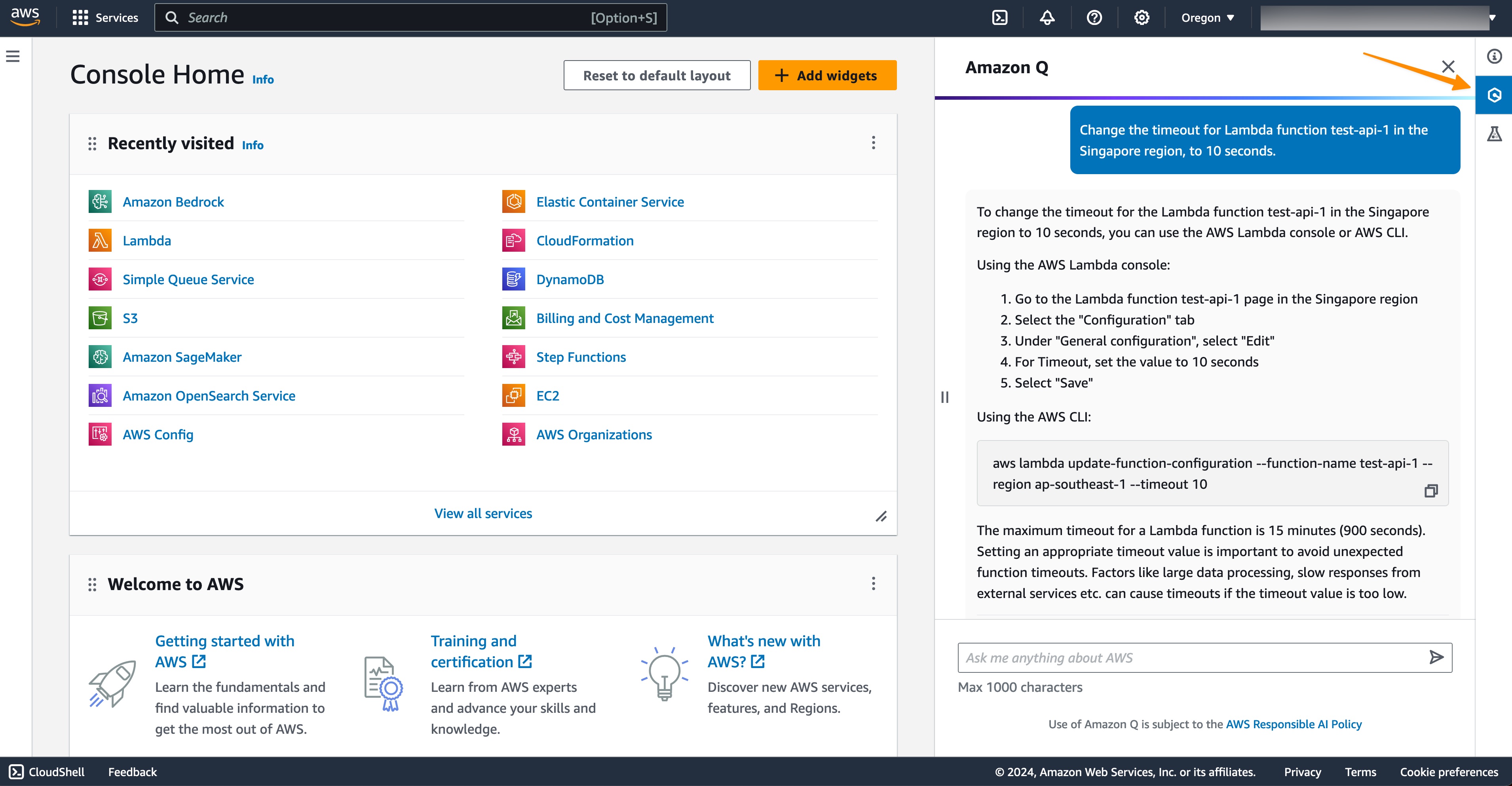The Evolution of AI Coding Assistants: From CodeWhisperer to Q Developer
A New Era for Developers
Table of Contents
- A New Era for Developers
- The Rise and Fall of CodeWhisperer
- Q Developer: A Broader Scope and Enhanced Capabilities
- Beyond Code Generation: A Holistic Approach
- Streamlining the Development Process
- The Future of AI in Software Development
- Amazon’s Q Developer: A New Approach to Code Evolution
- How Q Developer Works: A Behind-the-Scenes Look
- Comparing Q Developer to GitHub Copilot
- Navigating the Potential Pitfalls
- Beyond Coding: Q Developer’s Cloud Management Capabilities
- Pricing and Considerations
- Navigating Copyright Concerns in AI-Powered Development
- The Importance of Ethical Development Practices
Amazon has reimagined its approach to AI-powered coding assistance with the launch of Q Developer, a powerful generative AI chatbot that builds upon the foundation of its predecessor, CodeWhisperer. This evolution signifies a shift towards a more comprehensive and versatile platform designed to streamline the entire software development lifecycle.
The Rise and Fall of CodeWhisperer
CodeWhisperer, while initially promising, faced challenges in capturing market share against established competitors like GitHub Copilot. Third-party metrics revealed that even with a free tier, CodeWhisperer struggled to match the impressive user base of Copilot, which boasts over 1.8 million paying individual users and tens of thousands of enterprise clients. Learn more about Copilot’s impact on the coding landscape. Early impressions of CodeWhisperer also fell short, contributing to its limited adoption.
Q Developer: A Broader Scope and Enhanced Capabilities
According to Doug Seven, GM and director of AI developer experiences at AWS, “CodeWhisperer was a great starting point, but we needed a brand and model that encompassed a wider range of use cases.” Q Developer emerges as this evolution, offering a more comprehensive suite of features designed to address the diverse needs of developers.
Beyond Code Generation: A Holistic Approach
Q Developer goes beyond simple code generation by incorporating functionalities like SQL code generation, test automation, and code refactoring. Developers can fine-tune Q Developer on their internal codebases for enhanced relevance and accuracy. A unique feature called Brokers allows Q Developer to autonomously perform tasks such as implementing features, documenting code, and restructuring existing code.
Streamlining the Development Process
Imagine requesting Q Developer to “create an ‘add to favorites’ button in my app.” Q Developer analyzes your code, generates the necessary code snippets, creates a step-by-step plan, conducts thorough code checks, and presents you with a comprehensive proposal. You can then review, iterate, and refine the plan before Q Developer implements the changes seamlessly.
The Future of AI in Software Development
Q Developer represents a significant leap forward in AI-powered coding assistance, offering developers a powerful toolset to enhance productivity, reduce errors, and accelerate the development process. As AI technology continues to evolve, we can expect even more sophisticated and intuitive tools that will reshape the future of software development. Explore how Amazon’s CodeWhisperer initially aimed to revolutionize coding.
Amazon’s Q Developer: A New Approach to Code Evolution
In the ever-evolving landscape of software development, Amazon has unveiled a novel tool called Q Developer, designed to streamline and accelerate the process of code evolution. This AI-powered platform promises to revolutionize how developers work with their codebases, enabling them to seamlessly integrate new features, address bugs, and modernize existing applications.
How Q Developer Works: A Behind-the-Scenes Look
Q Developer operates by creating a dedicated environment within the developer’s repository. This isolated space allows the platform to analyze the existing codebase thoroughly, identifying areas that require updates or modifications. Once identified, Q Developer automatically generates and implements the necessary changes, returning them to the developer for review and final integration.
Picture Credit: Amazon
Amazon emphasizes that Q Developer can automate and manage code upgrade processes, with Java conversions currently available (specifically from Java 8 and 11 built using Apache Maven to Java version 17) and .NET conversions coming soon. This feature allows developers to effortlessly modernize their applications and ensure compatibility with the latest technologies.
Comparing Q Developer to GitHub Copilot
Q Developer shares similarities with GitHub’s Copilot Workspace, another AI-powered platform that assists developers in generating and implementing code changes. Both tools aim to enhance developer productivity by automating repetitive tasks and suggesting solutions for common coding challenges. However, concerns remain regarding the potential for AI-powered coding assistants to introduce errors or vulnerabilities into codebases.
Research has shown that Copilot can sometimes generate incorrect code, as highlighted in a study by GitClear analyzing over 150 million lines of code committed to project repositories. Additionally, security researchers have warned that tools like Copilot may inadvertently replicate existing vulnerabilities in the generated code, posing potential risks to software security.
While Q Developer and similar platforms offer promising advancements in code evolution, it’s crucial for developers to exercise caution and thoroughly review the generated code before integration. Continuous testing and rigorous security assessments are essential to mitigate the potential risks associated with AI-powered coding assistance.
The Rise of AI Coding Assistants: A Double-Edged Sword
AI-powered coding assistants are rapidly gaining traction in the software development world, promising increased efficiency and productivity. However, these tools, while impressive, can inadvertently amplify existing bugs and security vulnerabilities within software projects. This is because AI assistants learn from existing codebases, which may contain flawed patterns and practices. When developers rely too heavily on these assistants’ suggestions without careful scrutiny, it can lead to the creation of new bugs that are difficult to detect.
This issue is particularly concerning given the increasing adoption of AI coding assistants by developers. A recent report from CoDesignal highlights this trend, emphasizing the need for developers to approach these tools with caution and maintain a critical eye.
Beyond Coding: Q Developer’s Cloud Management Capabilities
Amazon’s foray into AI-powered development extends beyond coding assistance. Their new offering, Q Developer, aims to simplify cloud infrastructure management on AWS. This chatbot can perform tasks such as listing Lambda functions and identifying assets across different AWS regions. While still in preview, Q Developer demonstrates the potential for AI to streamline complex technical operations.
Q Developer can generate (but not execute) AWS Command Line Interface instructions and answer cost-related questions, providing valuable insights into cloud spending patterns. For instance, it can reveal the three highest-cost providers within a specific quarter. This capability empowers organizations to optimize their cloud resources and potentially reduce expenses.

Picture Credit: Amazon
Pricing and Considerations
Q Developer offers a free tier accessible through the AWS Console, Slack, and IDEs like Visual Studio Code, GitLab Duo, and JetBrains. However, this tier comes with limitations such as restricted usage of certain features and data collection practices. The premium version, Q Developer Professional, costs $19 per month per user and unlocks higher usage limits, advanced management tools, single sign-on, and crucial IP indemnity.
The decision to opt for the free or premium tier depends on individual needs and usage patterns. While the free tier provides a valuable introduction to Q Developer’s capabilities, the premium version offers enhanced functionality and security benefits for organizations requiring more robust cloud management solutions.
The Future of Code Generation: Amazon’s Q Developer and the Legal Landscape
The world of software development is rapidly evolving, with AI-powered tools like Amazon’s Q Developer taking center stage. These innovative platforms leverage machine learning to assist developers in writing code more efficiently and effectively. However, this progress comes with a crucial consideration: copyright law.
Training these sophisticated AI models often involves vast datasets of existing code, some of which may be protected by copyright or subject to restrictive licenses. While proponents argue that ”fair use” doctrines provide legal protection for such training practices, the debate remains contentious. Recent lawsuits against GitHub and OpenAI, the creators of Copilot, highlight the complexities surrounding this issue. These legal battles center around allegations that these platforms allow AI models to generate code that infringes on copyrighted material without proper attribution or compensation.

Amazon recognizes these concerns and aims to provide its Q Developer Professional clients with legal protection. The company states that it will defend its users against claims of copyright infringement as long as they allow AWS to manage their defense and settle any disputes according to Amazon’s discretion.
The Importance of Ethical Development Practices
As AI continues to reshape the software development landscape, it is crucial for companies like Amazon to prioritize ethical considerations. This includes ensuring that AI-powered tools are developed and used responsibly, respecting intellectual property rights, and promoting transparency in their operations.
By addressing these challenges head-on, Amazon can foster a more sustainable and equitable future for the software development industry.


